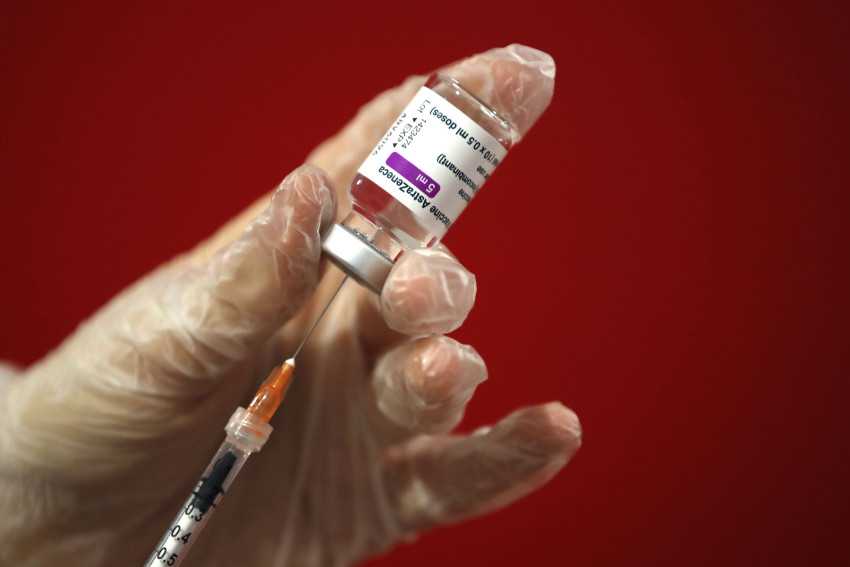AstraZeneca to publish total U.S. trial benefits after rebuke over 'outdated' data
24 March, 2021

AstraZeneca will publish up-to-date benefits from its key U.S. COVID-19 vaccine trial within 48 hours after overall health officials publicly criticized the drugmaker for using "outdated information" to show how very well the immunization worked.
The rare public rebuke marks the most recent setback for the vaccine once hailed as a milestone in the fight against the COVID-19 pandemic which has since been dogged by questions over its effectiveness and possible unwanted effects.
AstraZeneca said benefits it published on Mon where the vaccine had demonstrated 79% efficacy were predicated on an interim evaluation of info through Feb. 17, and it could now "quickly engage" with the independent panel monitoring the trial to share its full analysis.
The British-based drugmaker on Tuesday said it had reviewed the preliminary assessment of its full, or primary, analysis and found it to be constant with the interim report.
But the Washington Content reported that the info monitoring panel told federal officials that they had been working with the business through March, had seen data that showed the vaccine may be 69% to 74% effective, and had "strongly recommended" AstraZeneca include that information in its people statement.
AstraZeneca shares fell 1.8% in London trading.
The U.S. National Institute of Allergy and Infectious Illnesses (NIAID) said on Mon that the independent monitoring panel possessed expressed concern the company may possess included outdated data that offered an incomplete watch of the shot's efficiency.
NIAID Director Dr Anthony Fauci named the whole issue an extremely unfortunate unforced error.
"This sort of thing does ... nothing but really cast some question about the vaccines and may donate to the hesitancy," he advised ABC's "HELLO America."
"The data are really quite good however when they put it in to the press release it wasn't completely appropriate," he said.
As well as the 79% efficacy in stopping symptomatic illness in the trial conducted in the United States, Chile and Peru, the info reported on Monday as well showed the shot was 100% effective against extreme or critical varieties of the condition and posed no increased threat of blood clots.
Dr Larry Corey, co-innovator of the U.S. Coronavirus Vaccine Prevention Network, which helped style AstraZeneca's U.S. trial, said the monitoring panel's rebuke was something he previously not experienced before. The virologist at Fred Hutchinson Tumor Research Centre in Seattle, praised the panel for speaking up, saying it confirmed the machine of checks and balances performed.
One U.S.-structured investigator who was not certified to speak publicly stated AstraZeneca had not been wrong to create an analysis it had described as interim and expressed concern above the public controversy.
"It's just a little bit like shooting your self in the foot, since the science is great," the person said.
'NEGATIVE REPORTS'
The brand new questions about the shot's efficacy coincide using its rollout in a large number of countries and clouds the timeline because of its potential emergency use authorization in america.
"This is indeed a fantastic act. The negative studies about this vaccine usually do not prevent, although my assessment is that it is well tolerated and safe, but evidently less effective than the two mRNA vaccines," stated Peter Kremsner, from the University Medical center in Tuebingen, Germany.
Vaccines from Pfizer/BioNTech and Moderna that employ messenger RNA (mRNA) technology to produce an immune response both had efficacy rates of about 95% in their pivotal clinical trials, far in this article the 50% benchmark set by global regulators.
AstraZeneca's COVID-19 shot has faced queries since late this past year when the drugmaker and Oxford University published data from a youthful trial with two different efficacy readings consequently of a dosing mistake.
Confidence found in the vaccine took an additional reach this month, when greater than a dozen countries, mostly found in Europe, temporarily suspended offering the shot after reports linked it to a good rare bloodstream clotting disorder in an exceedingly few people.
The European Union's drug regulator said the other day the vaccine was obviously safe, but an view poll on Mon showed Europeans remained skeptical about its safety.
The AstraZeneca vaccine sometimes appears as crucial in tackling the spread of COVID-19 around the world because it is easier and cheaper to move than rival shots.
It's been granted conditional advertising or crisis use authorization in a lot more than 70 countries.
Various countries are relying heavily on the subject of the shot to get rid of the pandemic, and many state leaders took it publicly to improve confidence.
Source: japantoday.com
